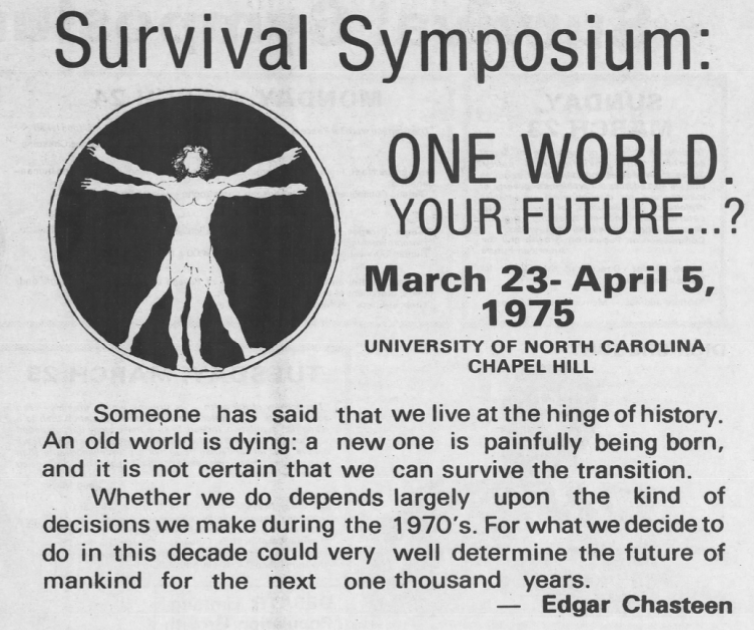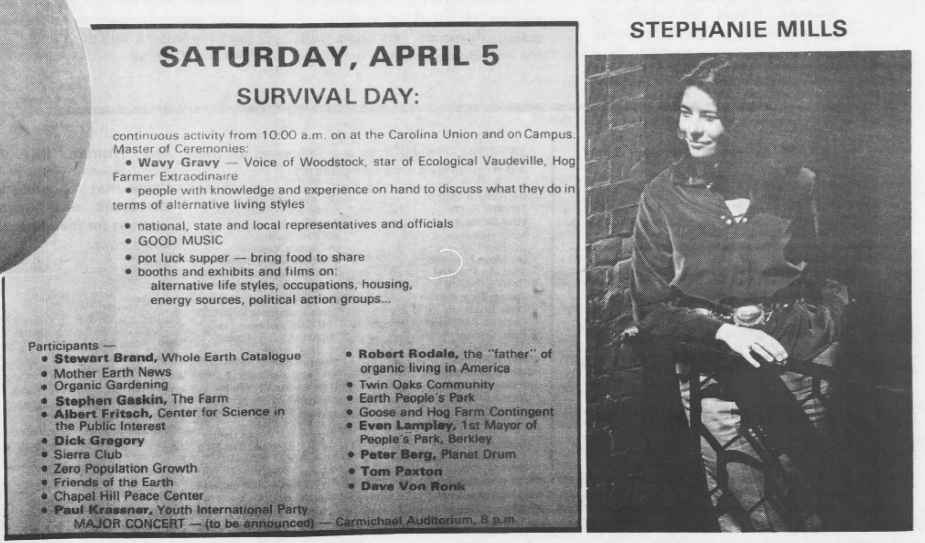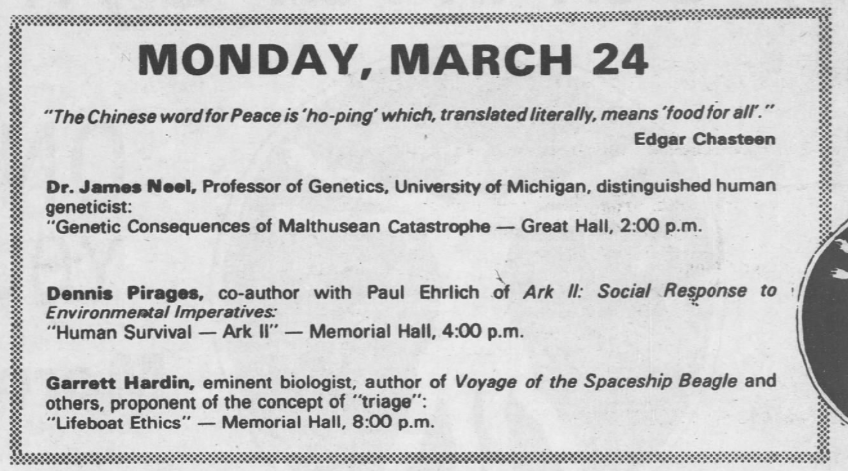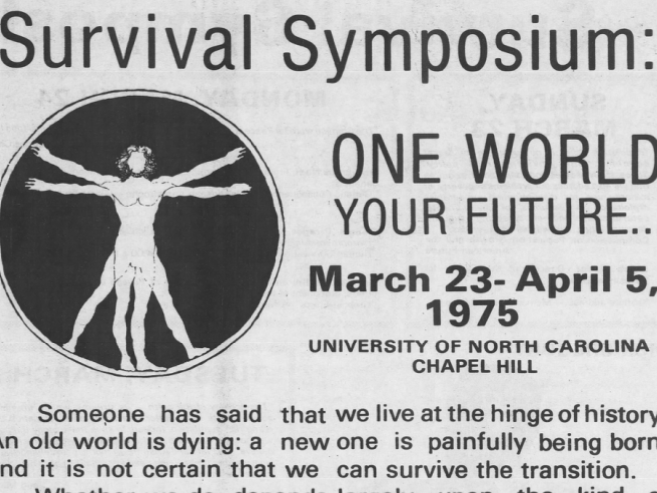In the spring of 1975, UNC hosted a series of events on the subject of population control. For the uninitiated, population control was a popular topic in the 1970s, premised on the belief that humanity’s only hope for survival was to dramatically reduce our population.
Fans of 1970s sci-fi have probably seen Soylent Green (1973), which was set in 2022 and depicts a world that was becoming uninhabitable due to overpopulation, global warming, and urbanization. Many at the time thought that Soylent Green depicted our likely, even certain, future.
The Chapel Hill event was titled the Survival Symposium and attracted future presidents, comedians, and musicians as well as many of the intellectuals who helped lay the groundwork for a movement that within a few years would turn to advocating for eugenics, sharp restrictions on immigration, and racist pseudoscience.

The event was put together by a 19-year-old UNC student, Robert Shirley, and featured an impressive list of guests, from population control darlings like Edgar Chasteen (who called for the forced sterilization of women after they gave birth to two children) and Garret Hardin (whose 1968 essay “Tragedy of the Commons” is a population control classic. Later Hardin became an ally of white supremacist anti-immigration groups), to political luminaries like Jimmy Carter and Ralph Nader. The event ended with a “Survival Day,” featuring a who’s who of people in the nascent ecology movement, many of them sympathetic to population control. (The comedian Dick Gregory, who published an essay in Ebony magazine in 1971 titled “My Answer to Genocide” in which he observed the racist implications of population control, attended the event as a critic.)

This symposium was one of many similar events in the 1970s. Population control advocates like Stephanie Mills, who made headlines for her 1969 commencement speech in which she called for people to not have children to save the planet, spent years on the lecture circuit promoting their beliefs.
(While reproductive autonomy is, of course, a good thing, many population control advocates wanted to reduce the population by preventing other people, particularly those who were living in what we now call the Global South, from having kids. For more on this, listen to this recent podcast on Paul Ehrlich’s incredibly popular—and incredibly wrong—1968 book The Population Bomb. Ehrlich, now 90, still gets fawning media coverage. He was on 60 Minutes last week.)

Population Control Advocates Are Still With Us
Why are we bringing up an event that happened almost fifty years ago? It’s because these beliefs—that the only way to solve our problems is to find some way to shrink our population—remain popular.
When judges in California call college students a form of “pollution,” and CHALT members advocate for studying the economic value of certain groups of people, they’re recalling, whether they realize it or not, ideas that became intertwined with one of the ugliest political movements of the past fifty years.
Since 1975, we have learned that we can address climate change and meet demands for resources by improving our social and technical systems. While meeting these challenges on a global scale requires investments in clean energy and sustainable food systems, locally we only need to change our antiquated rules so we can build walkable neighborhoods with homes for people from all backgrounds. Only the doomsayers among us believe that the only solution is to stop people from moving here, or even having children in the first place. We can do better than that.

